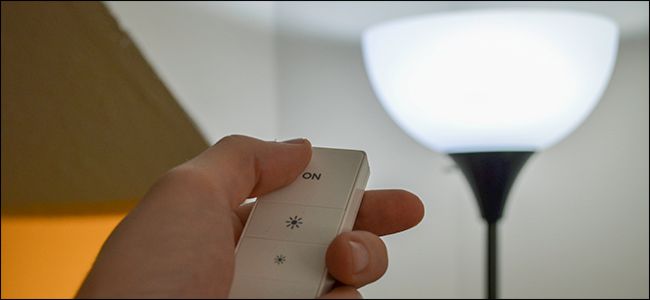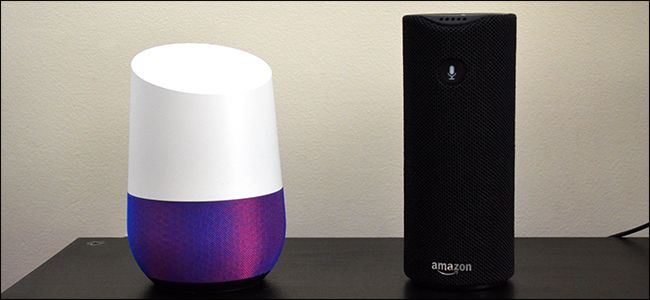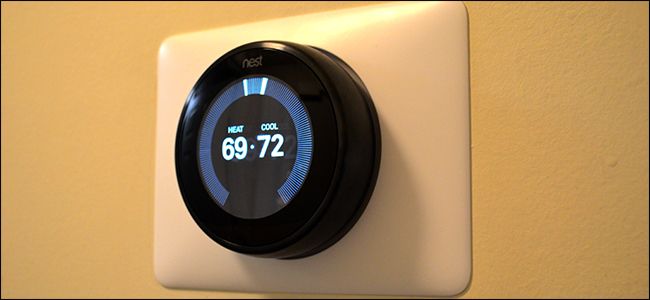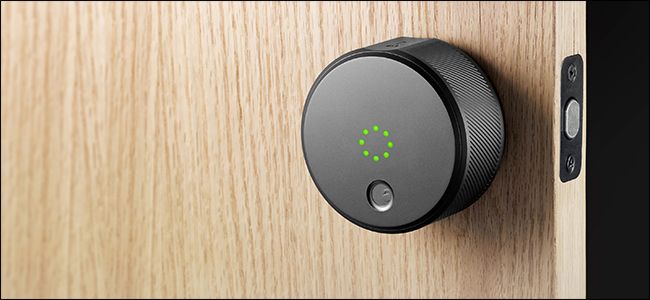Quick Links
Upgrading to a smart home used to be exclusively the realm of homeowners. If you couldn't run cables, replace switch boxes, or install expensive wall units, you had to live with dumb lights. With newer smart home gadgets, however, you can upgrade parts of your apartment---even without your landlord's approval in some cases.
The world of smarthome gadgets is a complicated one for renters, because laws vary from state to state. To make matters more confusing, specific landlords and apartment complexes can set their own rules for what you are---and are not---allowed to change. We'll give you general guidelines in this post, but always check with your landlord before you make any major or permanent modifications.
Start Small With Smart Lights, Sensors, and Voice Assistants
Most rentals have rules about changing fixtures, messing with the electrical wiring, or changing locks. We'll come back to those later, but fortunately you don't need your landlord's permission to change a light bulb or plug an Amazon Echo into the wall. If you want to dip your toes into the smart gadget waters, this is a good place to start. Here are a few examples of devices anyone can easily set up, even without your landlord's permission:
- Smart Light Bulbs: There are two ways to get smart lights in your home: smart light bulbs or smart light switches. Smart switches usually require complicated wiring, but you can plug a smart bulb into any normal light bulb socket. This makes smart light bulbs extremely helpful to renters. Even if you don't have permission to change out your switches, you can plug a Philips Hue light or LIFX bulb into your lamp or overhead light and control them with your phone or a voice command. When you move, just unscrew the light bulb and you're good to go. You can even get some stick-on wireless switches to control your lights from the wall without replacing complicated wiring.
- Sensors: Various smart sensors, like the ones in Samsung's SmartThings product line, have a wide array of uses. You can use door sensors to activate your lights when you enter a room, or to send an alert when your mailbox has been opened. Most sensors stick to walls or doors, so you don't have to worry about losing your deposit or violating your lease to use them.
- Voice Assistant Hubs: The crown jewel of renter-friendly smart gadgets, voice assistants like the Amazon Echo and Google Home let you play music, manage your calendar, order things online, remember where you put your stuff, and get answers to basic questions. They're also the glue that holds a smart home together. Turning on your lights with a phone is nice, but nothing beats asking your personal voice assistant to turn the lights on for you.
Unless you have a weirdly strict landlord, you can use any of these in most apartments, condos, or rental houses. You also don't need too much technical knowledge to set them up.
Move Up to Thermostats and Wall Switches, With Permission From Your Landlord
Any time you have to mess around with wiring, you need to know your landlord's policy up front. Landlords are legally responsible for ensuring that every fixture in the home is safe and conforms to building codes. For some landlords, it's easier to simply forbid tenants from making any modifications. Others may allow you to make upgrades as long as you get permission first. If you're not sure what's allowed, check your lease and talk to your landlord.
If you get permission to make minor modifications to your rental, you can expand your smart gadget options to include a few more categories:
- Wall Switches: Replacing the light switches in your home with internet-connected smart switches—like the Belkin WeMo switches—is slightly more complicated than using a smart light bulb. However, it gives you a little more flexibility and lets you buy cheaper bulbs. You'll need to have a basic understanding of electrical wiring and how to mount switches in a wall. If you're not sure you can do this on your own, ask your landlord if they can install the switch for you.
- Smart Thermostats: You can install some smart thermostats---like the Nest---with only a couple of screws and threading of a few wires. However, even if you get permission from your landlord, you still might not be able to install a smart thermostat. Older buildings that use high-voltage systems aren't compatible with devices like the Nest. You can check out our guide on how to install a Nest to see what the installation will entail. Once again, if you're not comfortable doing the installation yourself, ask your landlord if they can do it for you.
Getting permission from your landlord to make modifications is the first step, but you should still be wary about doing any of your own installations. When you move out, you'll need to return everything to the condition you found it in. If you don't install your gadget properly, you could end up creating a hazardous situation for future residents. Some landlords may be okay with smart switches or thermostats, but be sure to have a thorough conversation with your landlord about exactly how you'll install them first.
Also, remember that you'll need access to the circuit breakers in your home to turn them off while installing. Generally, tenants have a legal right to 24/7 access to circuit breaker panels, but this varies by state. Some circuits may be easier to access than others. If you're going to mess around with the wiring on a light switch or thermostat, be sure you're able to cut the power to the entire circuit before you proceed.
Smart Locks and Security Cameras Probably Won't Work, But You Can Ask
For renters, getting a smart lock or security system is closer to the "never gonna happen" end of the spectrum, but depending on your circumstances, you might be able to swing it. Once again, you'll have to talk to your landlord. You also need to make sure you preserve your landlord's right of entry.
Generally, landlords are allowed to enter your rental unit at all times. While state laws differ on when landlords are allowed to exercise that right (for example, in most states, landlords have to offer sufficient advanced notice or request permission before entering), you can't change the locks and prevent them from entering entirely without running afoul of the law. In other words, if you want to install a smart lock that changes the keys—or one that doesn't use keys at all—you could be violating the law.
However, there are some smart locks you may be able to use (with permission). For example, the August Smart Lock only replaces the inside knob on a deadbolt. It still uses the regular keys and the lock appears exactly the same from the outside. A landlord may be more amenable to something like this, since they'll still be able to use their key to get in and it won't replace the existing lock.
Beyond the lock, security systems may also be harder to pull off. Smart cameras like the Nest Cam Outdoor require cables to run outside. Even totally wireless cameras like the Arlo Pro need mounting plates. You may have permission to make holes in the walls inside your apartment, but you might not be allowed to mount things outside.
On top of this, if you live in a gated apartment complex or in a place that already has on-site security, setting up your own system may be overkill and can even backfire. One of the most important ways to protect your home from thieves is to take away their incentive to rob you. If you're the only person in the complex with a security camera and a smart lock on their door, it screams "I've got stuff worth stealing! Come rob me!" These devices also won't stop someone from smashing your window.
Finally, remember that the most common type of burglary is going to come not from clever career thieves, but from male teenagers who live within a couple miles of your home. They're punks, not pros. Depending on where you rent, it may be easier to coordinate with the rental company's security, rather than trying to build your own security system in an apartment complex.
Overall, renters these days have a pretty good selection when it comes to smart home gadgets. You may not be able to run wires through every room of the house, or replace every light switch with a fancy internet-connected gadget, but you can still make your house just a little bit magic.




